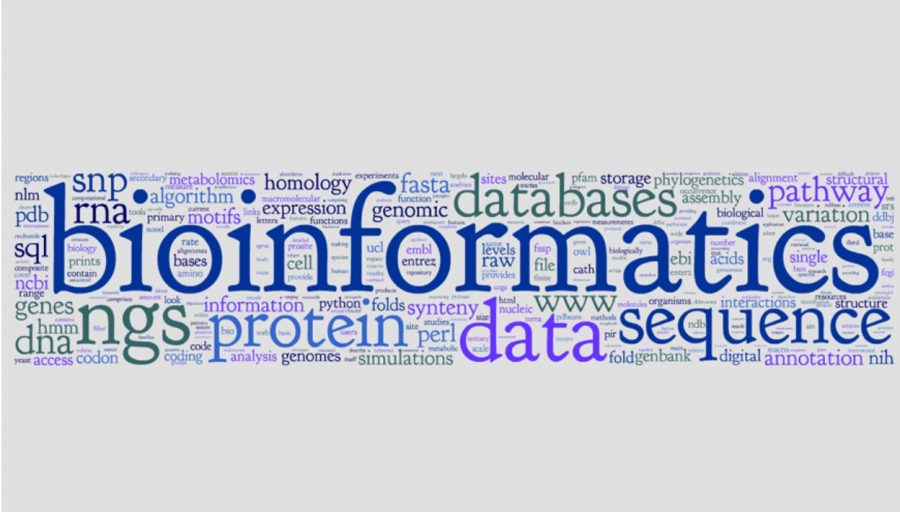New Class: Microbial Genomics and Bioinformatics
Students will tie together biology and computer science to analyze and hypothesize about data, an essential skill for careers in the biological sciences
Bioinformatics is a recently approved class that will be taught by Dr. Morrow. It will focus on biological data analysis, using recent research as part of the curriculum. Any student who has taken a biology course may enroll. Photo courtesy of www.justscience.in.
December 11, 2018
Geared toward students who have an interest in biology and computer science, but haven’t been able to find a class that includes both, Bioinformatics might fulfill their needs. Bioinformatics will be available to students in the next school year and will be taught by Dr. Morrow, who currently teaches IBET Biology and AP Biology.
Dr. Morrow designed Bioinformatics to be a bridge between biology and computer science, as both subjects draw a lot of interest at Jefferson. It is also an important subject anyway, because bioinformatics is a tool used across the board in biology, particularly when it comes to manipulating genetic data.
Students who choose to take Bioinformatics would learn about microbial ecology and genomics, among other natural sciences. According to Dr. Morrow, any career in biology will cross paths with bioinformatics, so it is an essential skill for students who want to do lab research, especially in fields such as phylogenetics, cancer research, and drug discovery.
Bioinformatics will be available for sophomores, juniors, and seniors because Honors Biology is the only prerequisite. It might seem surprising that Bioinformatics only has one prerequisite, which is not related to computer science, but that is purposeful.
“One of the things that we had some conversations about with new courses that we’re introducing is that we want them to be accessible to students for a lot of different reasons and we want to try to limit prerequisites and and just make it more open,” principal Dr. Bonitatibus said.
Students might be required to read one research article every week, or every other week, but there won’t be much worksheet-type homework. The class will include discussion-based lectures and student-led discussions of recent primary scientific literature. According to Dr. Morrow, a textbook would be outdated, because many of the topics that will be covered are current and changing rapidly. In addition, students will use technology to analyze some of that scientific data, or even data that they have collected themselves.
“[Students] will be in a computer lab environment for at least 50% of the class,” Dr. Morrow said. “Students will develop their own hypothesis about data… and write their own scientific papers as the capstone project in the class.”
Dr. Morrow’s hope is that Bioinformatics will expand on what students learned in Biology. However, the class is still a work in progress, and she anticipates that the class will be slightly more flexible than most other courses.
“I am interested in tweaking the course to fit students’ interests,” Dr. Morrow said. “It will be more like a college course than a high school course.”






